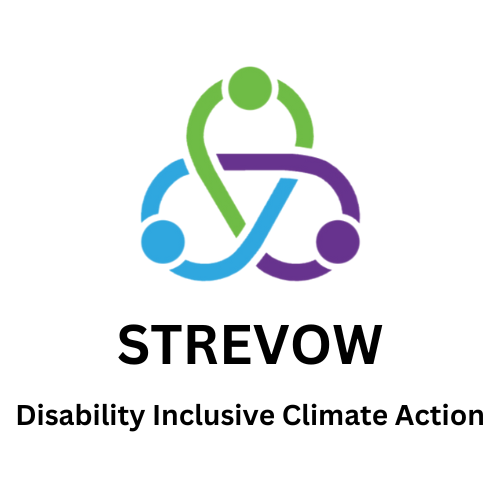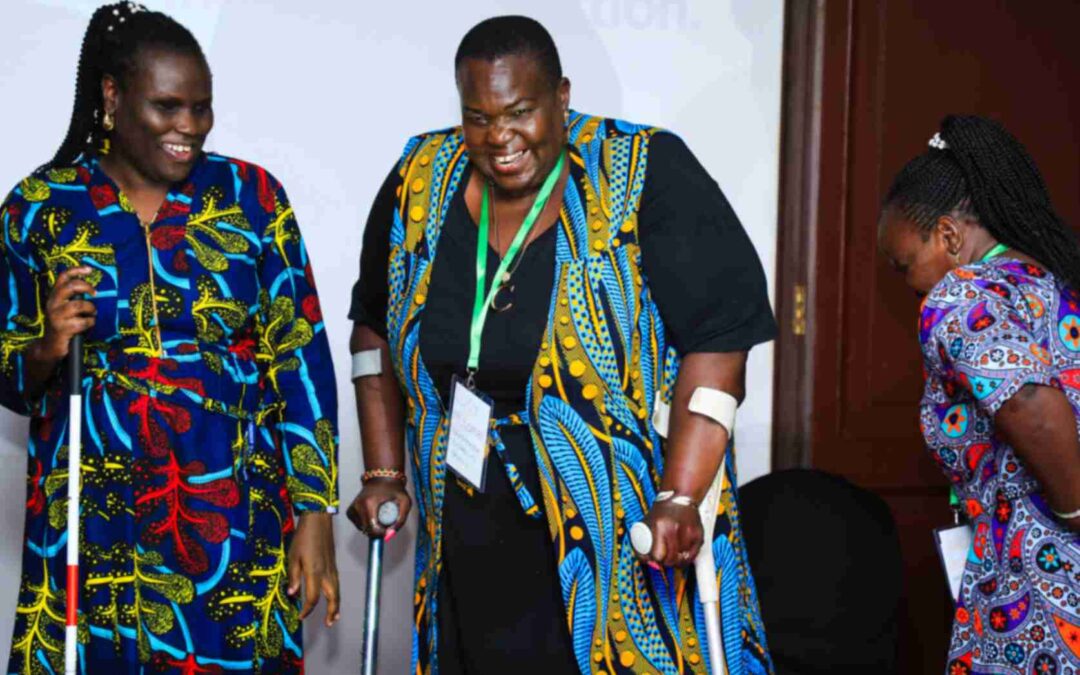Climate change is a global crisis that disproportionately affects vulnerable populations, particularly women with disabilities (WWD). Despite their unique experiences and insights, WWD are often excluded from climate change policies, adaptation strategies, and decision-making processes. The Strengthening the Voices of Women with Disabilities to Actively Participate in Climate Change Policy and Negotiations (STREVOW) project seeks to bridge this gap by ensuring that WWD have a seat at the table in climate-related discussions.
In this blog, we explore the barriers WWD face in climate change adaptation, the importance of inclusive policies, and the efforts being made to promote their active participation.
The Disproportionate Impact of Climate Change on Women with Disabilities
Women with disabilities face intersecting challenges that make them particularly vulnerable to the effects of climate change. These challenges include:
- Limited Mobility and Access to Emergency Services
During climate disasters, WWD often struggle to access evacuation routes, shelters, and emergency assistance due to physical barriers and lack of inclusive response plans. A study by the UN Office for Disaster Risk Reduction (UNDRR) found that persons with disabilities are two to four times more likely to die or be injured in natural disasters compared to those without disabilities - Economic Disadvantages and Livelihood Disruptions
Many WWD face economic hardships, making it difficult to recover from climate-related shocks. Loss of income, displacement, and destruction of property further deepen their financial struggles. Women with disabilities often depend on informal economies, which are highly vulnerable to climate change. - Health Risks and Inadequate Medical Support
Extreme weather events exacerbate health conditions, disrupt access to medication, and strain already fragile healthcare systems. The World Health Organization (WHO) highlights that women with disabilities often experience barriers to healthcare, and climate change intensifies these disparities - Exclusion from Climate Policy and Decision-Making
Despite being among those most affected, WWD are rarely consulted in climate policies. The absence of their voices in climate negotiations means that adaptation strategies often fail to consider their specific needs.
The Need for Inclusive Climate Adaptation Policies
Addressing the climate crisis requires inclusive policies that reflect the diverse experiences of all communities, including women with disabilities. A human rights-based approach to climate change adaptation ensures that no one is left behind. Here’s why inclusivity is essential:
- Equitable Representation in Decision-Making
Climate policies should involve WWD at every level, from local adaptation initiatives to international negotiations. The UN Convention on the Rights of Persons with Disabilities (CRPD) advocates for full participation in policy-making. - Adaptive Strategies that Address Accessibility
Infrastructure and emergency response systems must be designed to accommodate WWD. This includes accessible shelters, early warning systems that consider different communication needs, and evacuation plans that prioritize mobility assistance. - Economic Empowerment and Climate Resilience
Providing WWD with economic opportunities in climate-resilient industries, such as sustainable agriculture and renewable energy, enhances their ability to adapt. Funding and resources should be allocated to disability-inclusive climate adaptation programs. - Strengthening Advocacy and Awareness
Raising awareness about the specific challenges faced by WWD in climate adaptation is crucial. Advocacy groups and organizations should work together to amplify their voices and push for policy changes.
The STREVOW Project: A Step Towards Inclusion
The STREVOW project, led by the Inclusive Climate Change Adaptation for a Sustainable Africa (ICCASA) and the Centre for Minority Rights Development (CEMIRIDE), is actively working to strengthen the participation of WWD in climate policy and negotiations. Key initiatives of the project include:
- Capacity Building and Leadership Training
The project provides training programs to equip WWD with knowledge on climate change, advocacy, and policy analysis. These skills enable them to effectively participate in climate negotiations and influence decision-making. - Networking and Collaboration
STREVOW fosters partnerships between WWD, government bodies, and civil society organizations. These collaborations ensure that climate policies are inclusive and consider the lived experiences of women with disabilities. - Ensuring Gender and Disability Inclusion in Climate Policies
By advocating for the integration of disability rights in climate frameworks, STREVOW contributes to the development of policies that address the specific vulnerabilities of WWD. - Participation in Climate Negotiations
The project empowers WWD to take part in national and international climate discussions, ensuring that their perspectives shape adaptation and mitigation strategies.

